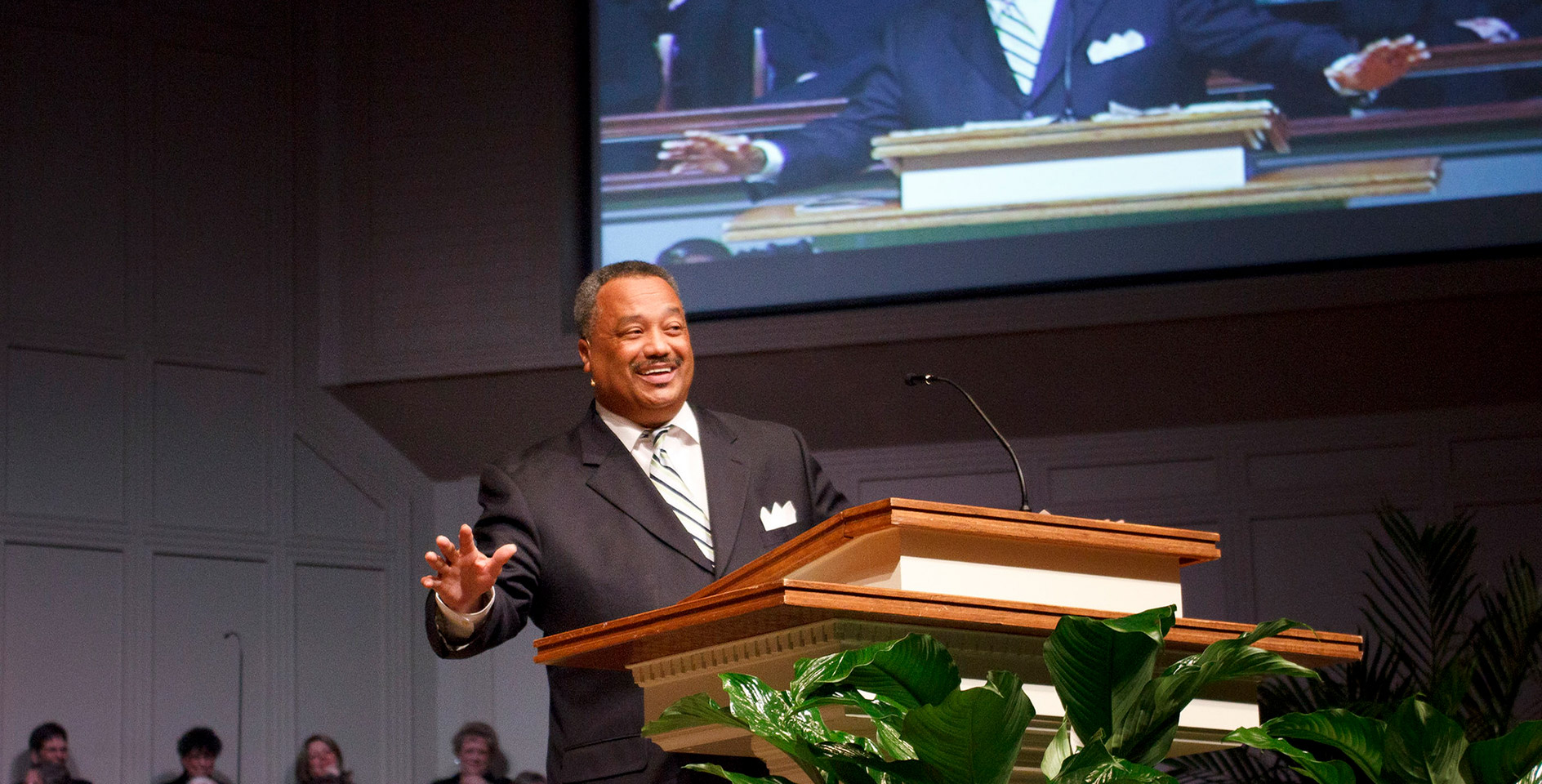This year marks the ten year anniversary of the election of the Southern Baptist Convention’s first African American first vice president. Fred Luter would also go on to become the first African American elected president of the SBC in its 166-year history. “[Luter] would likely be a candidate for sainthood one day if he were a Catholic,” said David Crosby, pastor of First Baptist Church in New Orleans. During the SBC presidential nomination speech in 2012, Crosby described Luter as “the fire-breathing, miracle-working pastor of Franklin Avenue Baptist Church.”
Here are five facts you should know about this historic SBC leader.
1. Luter was born in New Orleans, Louisiana in 1956. The middle child of five siblings, he was raised by his divorced mother in the city’s Lower 9th Ward. Although his mother made the family attend a Baptist church every Sunday, he drifted away from the faith while attending college at the University of New Orleans. But in 1977 he had what he calls his “Damascus road experience.” A serious motorcycle accident left him hospitalized with compound fractures and serious head injuries. While in the hospital he prayed, “God, if you save my life, I’ll serve you for the rest of my life.” Luter said that was when he felt called to go into pastoral ministry.
2. After recovering from his accident, Luter and a group of friends from church would spend their Saturdays preaching on the street corner of Galvez and Caffin Avenue in the Lower Ninth Ward. “We had no training,” said Luter. “We were just really excited about what God was doing in our lives, and we wanted to share it with others. We got ridiculed a lot.” When he first began street preaching, Luter was working for a brokerage firm during the week. It took nearly six years before he would preach his first sermon in a church building, at New Orleans’ Law Street Baptist Church. Three years later, while preaching at the Greater Liberty Baptist Church, he learned of the opening at Franklin Avenue Baptist Church. He applied for the position and was hired in 1986 to the church he would serve for the next 25 years.
3. When Luter took his first pastorate at Franklin Avenue Baptist Church, the congregation consisted of 65 members—mostly women and children. “You could count the number of men on one hand,” he says. Believing that if “you save the man, the man would save his family,” he purposely sought unique ways to draw men to the church. For example, in 1989 Luter bought a pay-per-view TV boxing match between Sugar Ray Leonard and Thomas Hearns and told the women in his church to invite every man they knew. Many of the 25 men who showed up weren’t aware they were coming to a pastor’s house, and were likely surprised when Luter invited them to come to church. “The boxing match was on a Friday night and the following Sunday five of those guys were at church,” Luter said. “The next Sunday there were more men.” This was part of Luter’s outreach strategy, which he refers to as “FRANgelism” (an acronym for Friends–Relatives–Associates–Neighbors). “Everybody needs to be a Missionary,” says Luter. “It’s about making the main thing the main thing, and that’s bringing people to Christ.”
4. Three years after becoming pastor at Franklin Avenue Baptist Church, the congregation had grown to 300 members. By 2005, the church had grown by 2,233%, to more than 7,000 members. Then Hurricane Katrina struck, burying the church building under eight feet of water. The church members had to leave their homes and were scattered all over the country. Luter travelled around preaching in the cities where his members landed, resulting in new church plants in cities like Baton Rouge, Louisiana and Houston, Texas. In 2012, Luter said “losing half our members and having them be spread all over the country” was one of the biggest challenges he’s had to face as a pastor.
5. In 2011 Luter became the SBC’s first African American first vice president and in 2001 was the first African American to preach the convention sermon. He also served on the committee that proposed a revision of the Baptist Faith and Message in 2000. At the annual meeting in 2012, he was the only candidate on the ballot and became the first African American elected president of the SBC. Luter served two terms as SBC president. “A descendant of slaves elected to lead a denomination forged to protect the evil interests of slaveholders is a sign of the power of a gospel that crucifies injustice and reconciles brothers and sisters,” said ERLC president Russell Moore. “The election of Fred Luter doesn’t mean the question of racial justice is settled for Southern Baptists, but it is one small step toward our confessing that Jesus Christ and Jim Crow cannot exist in the same denomination, or in the same heart. One has got to go.”










